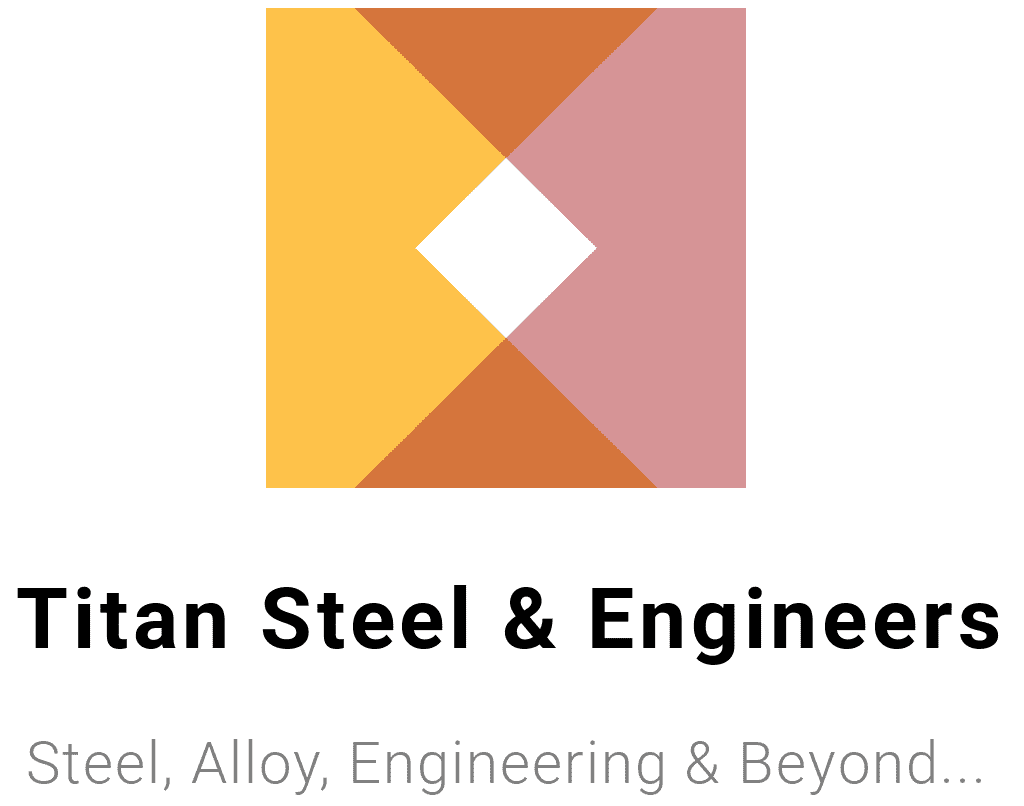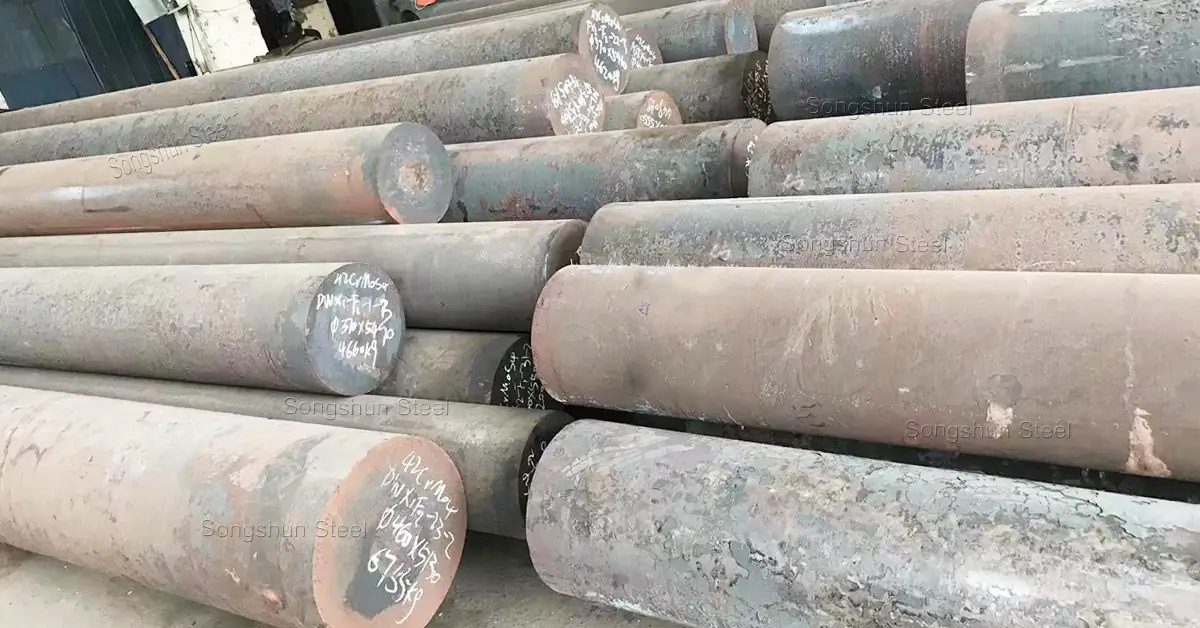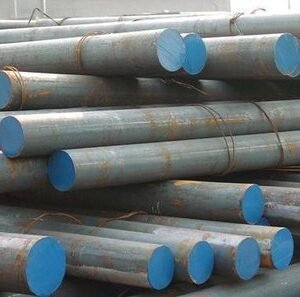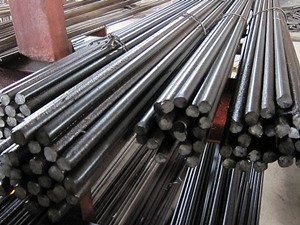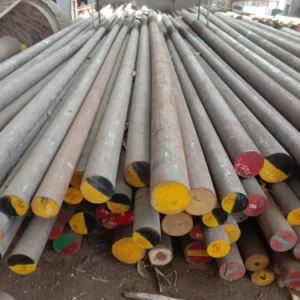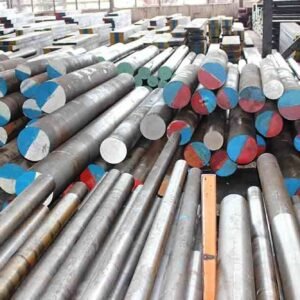Description
30CrNiMo8 Alloy Steel: In-Depth Overview
30CrNiMo8 is a versatile and high-performance alloy steel known for its excellent mechanical properties, including strength, toughness, and wear resistance. It is widely used in the automotive, engineering, and manufacturing industries due to its ability to perform under high-stress conditions. This alloy is part of the chromium-nickel-molybdenum steel family and is often utilized in components that require high strength and toughness.
Key Features of 30CrNiMo8 Alloy Steel:
- High Strength: Provides exceptional tensile and yield strength.
- Toughness: Offers good impact resistance and toughness, even at low temperatures.
- Wear Resistance: Demonstrates superior resistance to wear and abrasion.
- Heat Treatability: Can be heat treated to achieve desired mechanical properties, making it suitable for various applications.
Applications of 30CrNiMo8 Alloy Steel
30CrNiMo8 alloy steel is used in a variety of high-demand applications where strength and durability are critical. Its properties make it ideal for components that operate under severe conditions.
Typical Applications Include:
- Automotive Components: Gear shafts, crankshafts, and camshafts.
- Engineering Machinery: Heavy-duty gears, axles, and connecting rods.
- Industrial Equipment: High-stress components in manufacturing and processing machinery.
- Aerospace Parts: Structural components and fittings requiring high strength and durability.
Equivalent Grades of 30CrNiMo8 Alloy Steel
30CrNiMo8 alloy steel is known by different designations in various international standards, providing flexibility for different regions and specifications.
| Standard | Equivalent Grade |
|---|---|
| DIN | 30CrNiMo8 |
| EN | 1.6580 |
| AISI/SAE | 4320 |
| BS | 817M40 |
| UNS | G43200 |
Chemical Composition of 30CrNiMo8 Alloy Steel
The chemical composition of 30CrNiMo8 is crucial for achieving its desired mechanical properties. The following table outlines the typical composition:
| Element | Composition (%) |
|---|---|
| Carbon (C) | 0.28 – 0.35 |
| Silicon (Si) | 0.15 – 0.35 |
| Manganese (Mn) | 0.40 – 0.70 |
| Phosphorus (P) | ≤ 0.035 |
| Sulfur (S) | ≤ 0.035 |
| Chromium (Cr) | 0.90 – 1.20 |
| Nickel (Ni) | 1.30 – 1.80 |
| Molybdenum (Mo) | 0.15 – 0.30 |
This composition ensures the steel’s high strength, toughness, and wear resistance.
Mechanical Properties of 30CrNiMo8 Alloy Steel
The mechanical properties of 30CrNiMo8 are essential for its performance in demanding applications. The following table summarizes the typical mechanical properties:
| Property | Value (Typical) |
|---|---|
| Tensile Strength (MPa) | 700 – 850 |
| Yield Strength (MPa) | 500 – 650 |
| Elongation (%) | ≥ 12 |
| Impact Toughness (J) | ≥ 40 (at room temperature) |
| Hardness (HB) | 200 – 250 |
These properties highlight the alloy’s capability to withstand high stresses and impacts.
Heat Treatment of 30CrNiMo8 Alloy Steel
Heat treatment processes are used to enhance the mechanical properties of 30CrNiMo8. The following processes are commonly employed:
- Hardening: Heat to 850 – 880°C and quench in oil or water to achieve high hardness and strength.
- Tempering: Heat to 550 – 650°C after hardening to improve toughness and reduce brittleness.
- Normalizing: Heat to 850 – 880°C and air cool to refine grain structure and enhance toughness.
These heat treatments allow for the optimization of the steel’s properties for various applications.
Hardness of 30CrNiMo8 Alloy Steel
The hardness of 30CrNiMo8 varies depending on the heat treatment it undergoes. Typical hardness values are:
- Annealed Condition: 190 – 210 HB
- After Hardening and Tempering: Up to 55 HRC
These hardness values indicate the steel’s ability to provide high strength and resistance to wear.
Physical Properties of 30CrNiMo8 Alloy Steel
The physical properties of 30CrNiMo8 ensure its stability and performance across different temperatures and load conditions. The following table summarizes these properties:
| Property | Value |
|---|---|
| Density (g/cm³) | 7.85 |
| Melting Point (°C) | 1420 – 1450 |
| Thermal Conductivity (W/m·K) | 30 – 35 |
| Specific Heat Capacity (J/kg·K) | 460 – 480 |
These properties contribute to the alloy’s reliability in various operational environments.
Forging Properties of 30CrNiMo8 Alloy Steel
30CrNiMo8 can be forged within the temperature range of 1150 – 1250°C. It is crucial to cool the forged components slowly to avoid internal stresses and maintain dimensional stability.
Stress Relieving for 30CrNiMo8 Alloy Steel
Stress relieving involves heating the steel to 600 – 650°C to remove residual stresses from machining or forming. This process helps improve dimensional stability and reduce the risk of deformation.
Normalizing 30CrNiMo8 Alloy Steel
Normalizing is performed by heating the steel to 850 – 880°C and allowing it to cool in air. This process enhances toughness and refines the grain structure, improving the overall mechanical properties.
Annealing 30CrNiMo8 Alloy Steel
Annealing involves heating the steel to 680 – 720°C and cooling it slowly in the furnace. This process enhances machinability and prepares the steel for further heat treatments.
Machinability of 30CrNiMo8 Alloy Steel
30CrNiMo8 alloy steel exhibits good machinability, especially in its annealed condition. It can be machined into complex shapes with standard cutting tools, although care should be taken to manage tool wear during high-hardness operations.
Welding of 30CrNiMo8 Alloy Steel
Welding of 30CrNiMo8 is feasible with proper preheating (to about 150 – 200°C) and post-weld heat treatment. Following appropriate welding procedures helps prevent issues such as cracking or reduced toughness.
Supply Cities:
Mumbai Ahmedabad, Amaravathi, Ambattur, Bangalore, Belgaum, Chennai, Chittoor, Coimbatore, Dindigul, Mysore, Nellore, Hyderabad, Kochi, Mangalore, Tirupur, Tuticorin, Madurai, Andhra Pradesh, Karnataka, Puducherry, Kerala, Tamil Nadu, Telangana, Visakhapatnam, Kochi, Kerala, Hubli-Dharwad, Karnataka, Ghaziabad Kolkata.

